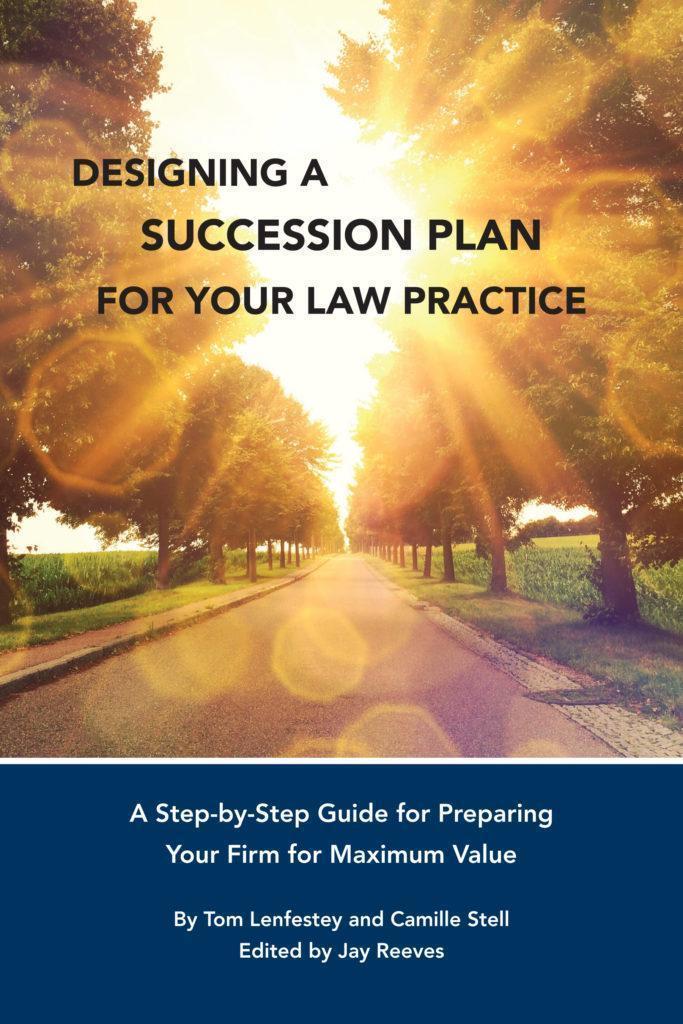If the past 18 months has taught us anything, it is to expect the unexpected.
After all, who could have imagined the events we’ve experienced? It seems more like a Hollywood movie than real life.
Any although the future is unpredictable, we can always hope for the best and prepare for the worst. For law firm owners, preparation begins with a Succession Plan.
What would happen if you or your law partner has a health crisis and can’t work? Or if one of you died? What if you have a medical emergency at home that affects your availability at the office?
What if your practice is suddenly disrupted by a change in the law, or the departure of a key employee, or the appearance of a competitor right across the street? What if you’re ready to retire, or cut back on your hours, or transition into a new career?
What would happen to your family, your clients and your employees? Who would take care of them, and how?
A Succession Plan can answer these and other critical questions.
Learn more about succession planning by attending our upcoming live webinar, Success in Succession Planning on October 5. Our guest speaker is Camille Stell, CEO and founder of Lawyers Mutual Consulting & Services, who (literally) wrote the book on Designing a Succession Plan for Your Law Practice. One hour of CLE credit has been applied for and is expected to be approved. Register here.
An important first step in preparing a Succession Plan is defining your objectives. The following is from the book, “Designing a Succession Plan for Your Law Practice,” and is reprinted with permission from the authors.
Step One: Define Your Specific Objectives
What is most important to you as you think about transitioning from active practice?
Specific objectives: (ex: to move as quickly into retirement as possible; to gradually taper off; to make sure my clients and staff are taken care of after I’m gone, etc.)
Is timing of the exit from your practice a key factor?
Specific objectives: (ex: not really; I’m happy to take as much time as possible to find the just-right successor; yes, because I want to move to Paris with my spouse in two years, etc.)
How long do you want to be involved with your law practice after exiting?
Specific objectives: (ex: years, months, no involvement at all, etc.)
What do you want your professional legacy to be?
Specific objectives:
Is it important that your practice successor shares your professional and personal philosophies?
Specific objectives:
What type of buyer or practice successor would be an ideal fit for you and your clients?
Specific objectives:
What are you going to do after practicing law?
Specific objectives:
What are your personal and family priorities after exiting your practice?
Specific objectives:
Why do you want to sell your practice?
Specific objectives: (ex: to make xx amount of money for retirement; to be relieved from the burden of running it, etc.)
Is the financial benefit the most important factor in selling your practice?
Specific objectives:
What price do you want for your practice?
Specific objectives:
Do you want to continue to work after you sell your practice?
Specific objectives:
Who are the professional advisors, peers, family members and friends that can help you in your transition?
Specific objectives:
How do you plan to engage these people as part of your transition team?
Specific objectives:
Order a copy of “Designing a Succession Plan for Your Law Practice.”
If you practice in Wisconsin, Texas, Minnesota, Ohio, Illinois, Indiana or Michigan, you can stay on top of ethics and risk management news by being a member of Alta Pro Lawyers RPG. You’ll get access to free webinars, the Pro Practice Playbook, Reminger ProLink, Ask the Risk Pro and more. Here’s how to join.

















